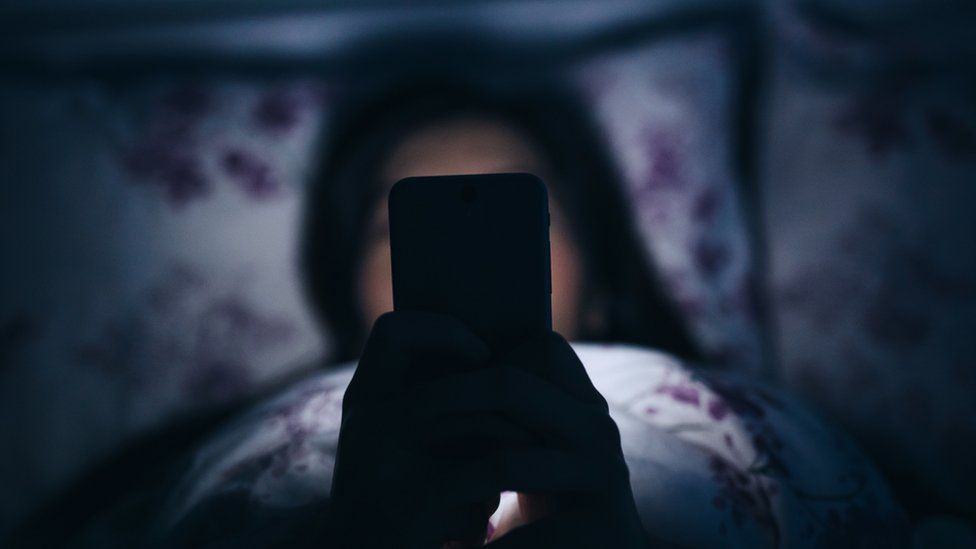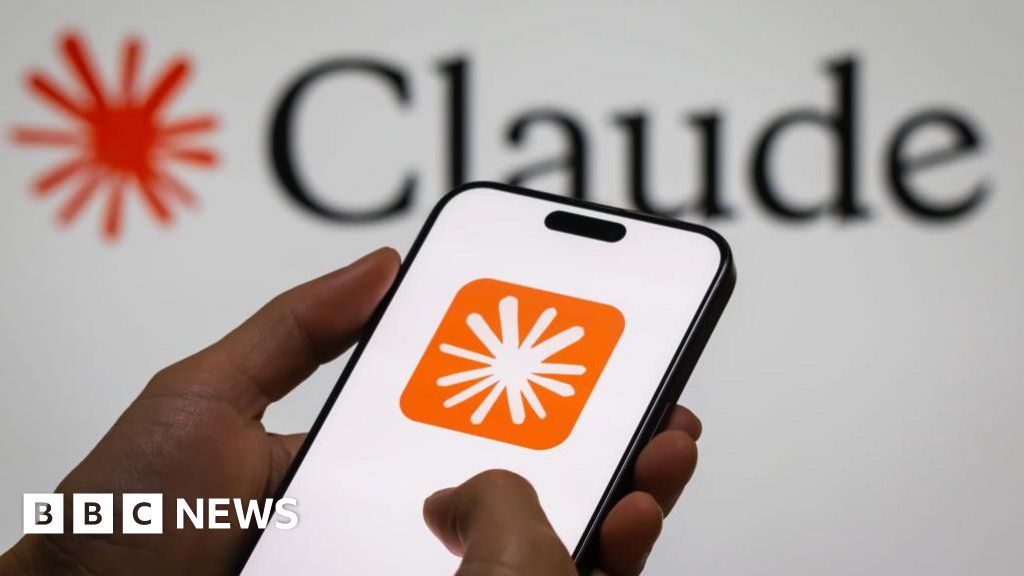ARTICLE AD BOX
 Image source, Getty Images
Image source, Getty Images
Internet and Technology Addicts Anonymous (ITAA) is a recovery programme modelled on Alcoholics Anonymous
By Clodagh Stenson
BBC News
Digital addictions are not currently recognised by the NHS or World Health Organisation, so where can you turn when the scrolling takes over your life?
The BBC has spoken to three people in a 12-step programme for internet addicts.
"It was better than going outside, it was better than speaking to Mum and Dad, it was better than drawing."
In a small room in West Oxford Community Centre, 19-year-old Sophia describes her destructive, decade-long relationship with technology.
Born in a slum in East Asia, Sophia joined her parents in the UK as a young child. Her early years in Oxfordshire were lonely, and she said her devices felt like friends.
She said: "I hadn't learnt English that well yet and I was alone and ostracised. It was this perfect thing, it could be anything I needed at that time, it could be comfort if I was lonely."
Aged 15 Sophia said she quit social media, but the compulsions did not abate.
With dreams of dragging her family out of poverty, she said she began bingeing for 16 hours a day on self-help content, watching more than 10,000 videos related to money-making and self-improvement.
"My relationships were a shambles. I have barely any memories to speak of from my teenage years, my academics suffered and I was suicidal," she said.
Maggie said the stress of a new job led her to longer and longer binges on video content
In 2023, Sophia sought help at Internet and Technology Addicts Anonymous (ITAA), a recovery programme based on the 12-step model used by Alcoholics Anonymous.
Formed in 2017, ITAA calls itself a "self-supporting community of individuals" where members from across the world help each other through one-on-one sponsorships, in-person meetings and online.
The types of digital addiction it deals with include social media, video streaming, online news, dating sites, pornography, gaming, online research.
There are only two in-person support groups in the UK - London and Oxford - with a third soon to form in Manchester.
In Oxford, Sophia, and two other ITAA members, Abby and Maggie, shared how their internet use impacted their lives.
Abby said she became addicted to streaming services when she went to university, bingeing all day and night, forgetting to eat or sleep.
"The dishes would be piled up for weeks and weeks," she said.
Maggie said the the internet was her "drug of choice" and that the stress of a new job led her to longer and longer binges on video content.
Digital addictions are not recognised by the NHS or the World Health Organization (WHO)
"I suddenly didn't show up for work one day, got dressed for work and just got back into bed and started watching YouTube. It shocked me actually, really shocked me."
She swore to her manager it would not happen again, but the following week she binged for four days and eventually lost the job.
In the depths of their internet binges, all three were looking for help, but GPs, mental health services, courses on stress and internet research on addiction did little to control the compulsions.
In an act of desperation, Maggie said she turned up at a Narcotics Anonymous meeting.
She said: "Suddenly I'm in a room with people who, you know, if I just substitute the word drugs for YouTube it was exactly the same story."
John McAlaney, a professor of psychology at Bournemouth University, told the BBC the idea of being addicted to the internet "is almost as old as the internet itself", but he said there was a lack of a "universal, agreed definition".
"At present in the UK it would be difficult to give some a very precise diagnosis of any particular kind of digital addiction, but most medics and psychologists and psychiatrists would recognise someone is having an issue," he said.
Digital addictions are not recognised by the NHS or the World Health Organization (WHO), unlike gaming disorders, which were officially recognised from 2022.
John McAlaney said there was a lack of a "universal, agreed definition" for internet addiction
Prof Andrew Przybylski, who studies human behaviour and technology at the Oxford Internet Institute, said he would like to see health services treat the reasons behind compulsive behaviours, rather than create a new diagnosis of "digital addiction".
The Priory, the UK's biggest private provider of mental health services, told the BBC that enquiries to their private addiction services about gaming, internet or social media, gambling and porn addictions more than doubled between 2020 and 2023.
Sophia, Abby and Maggie are all now at various stages of recovery, and say ITAA meetings, both online and in-person, were life-changing.
"I just remember crying so much throughout most of the meeting", Abby said.
"Because they were sharing my story, there were people like me and I'd never heard someone sharing these similar experiences before."
As part of ITAA's 12th step, which states "carry this message to internet and technology addicts", Abby and Maggie formed an in-person support group in Oxford.
"It's just different in-person you know," Sophia said. "You can't ever replace that."
Abby now abstains from video sites and TV, Maggie uses library computers for online access, and Sophia's sponsor keeps her in check when she needs to use the internet.
"I have to practise every day, maintain my fit spiritual condition," Maggie said.
"Because if I was living in the middle of a desert or in the arctic, when I get an urge I would find a way to use."
Sophia, Abby and Maggie have had their names changed to protect their anonymity.
Follow BBC South on Facebook, X, or Instagram. Send your story ideas to south.newsonline@bbc.co.uk.
Related Internet Links
The BBC is not responsible for the content of external sites.

 1 year ago
144
1 year ago
144








 English (US) ·
English (US) ·